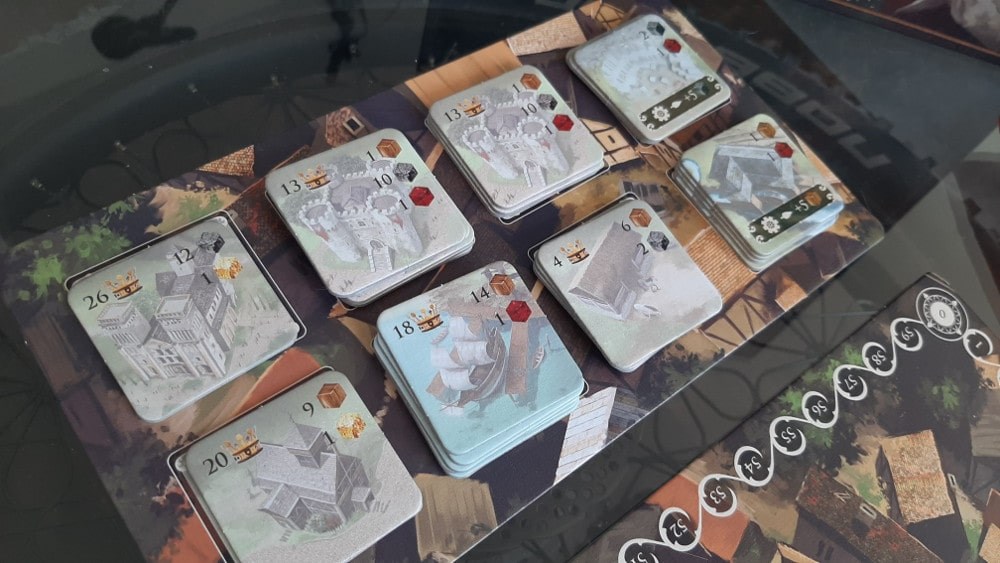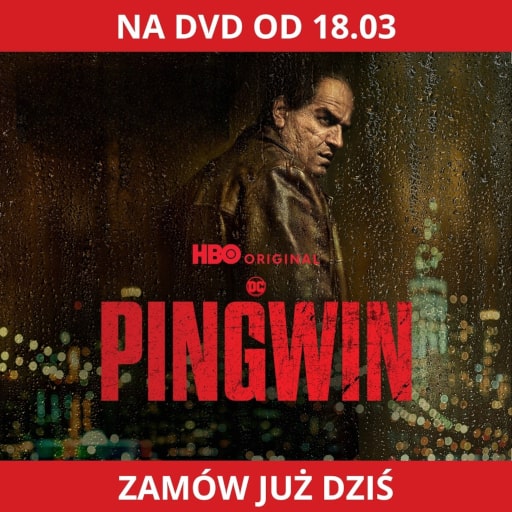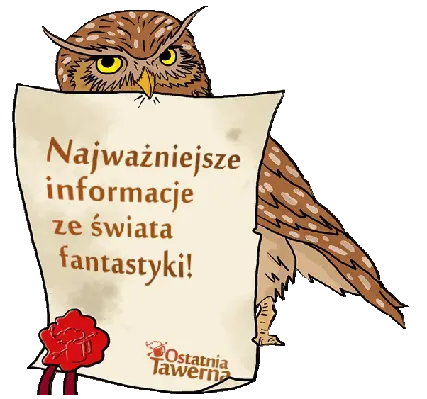The specificity and advantages of the euro game
Faktoria is a Polish euro-type strategy game from Lutygo, set in the world of medieval Europe, where trade is booming and cities are booming: new castles, cathedrals, stables and other buildings are being built, as well as waterways providing even more raw materials.
It has advantages characteristic of Euro games, such as: clear rules (understandable even for second-graders), friendly competition (no player elimination), simple and pleasant design with abstract elements – colorful wooden cubes of raw materials, building tiles or cardboard coin discs. It is also characterized by a low randomness limited to the randomness of resources appearing on the market and the lack of, for example, dice rolls that could have any impact on the result of the game. The ability to think strategically and manage the budget wisely is the most important award.
A discernible feature typical of the Euro-game is also the unique innovative mechanics developed by its creators Luca-Olivier and Renata de Charriere, which consists of characteristic elements such as auctions and collecting resources.
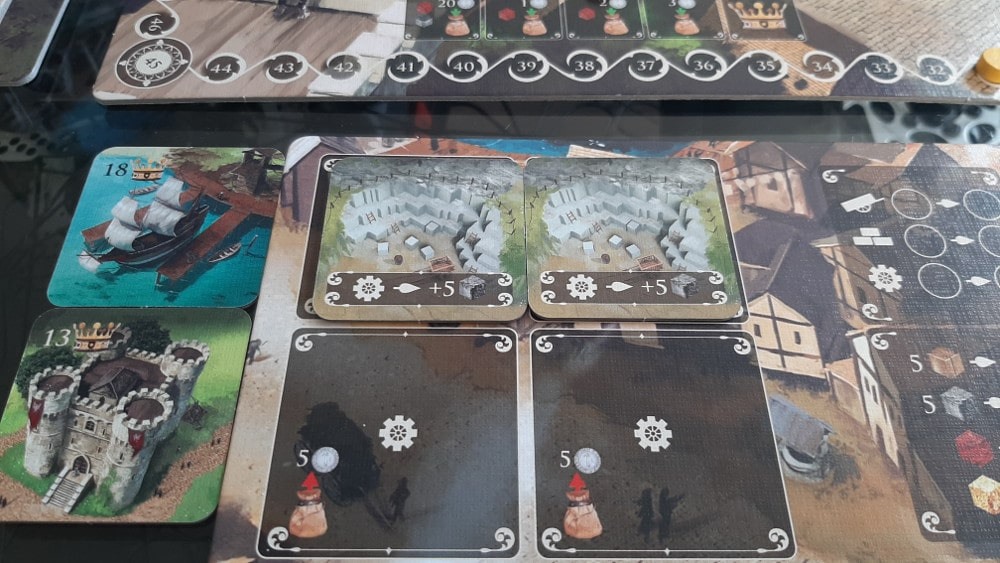
Trade in the market and build your own city!
King Ludwik has set us an extremely important task to build a new city, and the person who will build the most prestigious buildings will be awarded the lifetime title of the village head, passed down from generation to generation. As you probably guessed, the medieval ruler is not only generous but also cruel – the remaining people will unfortunately be thrown into the dungeons (of course, we can spare this information for more sensitive children).
At the beginning, the king gives each player twenty florins and a bit of resources, and then slightly supports us in the next rounds. However, in order to get the materials necessary for construction, we have to visit the medieval market, where merchants display their goods: stones, wood, iron, and sometimes also rare gold.
Among the buildings we erect, there are not only prestigious buildings that please the king’s eye and give victory points, but also production ones: sawmills and quarries that allow you to extract resources every turn, which nostalgically reminds me of my beloved Heroes of Might and Magic . As in the well-known computer game, we also have to collect the appropriate materials for the buildings that we want to build and invest the money wisely. We also have something similar to a supermarket, where we can sell our raw materials at a very unfavorable price at any time.
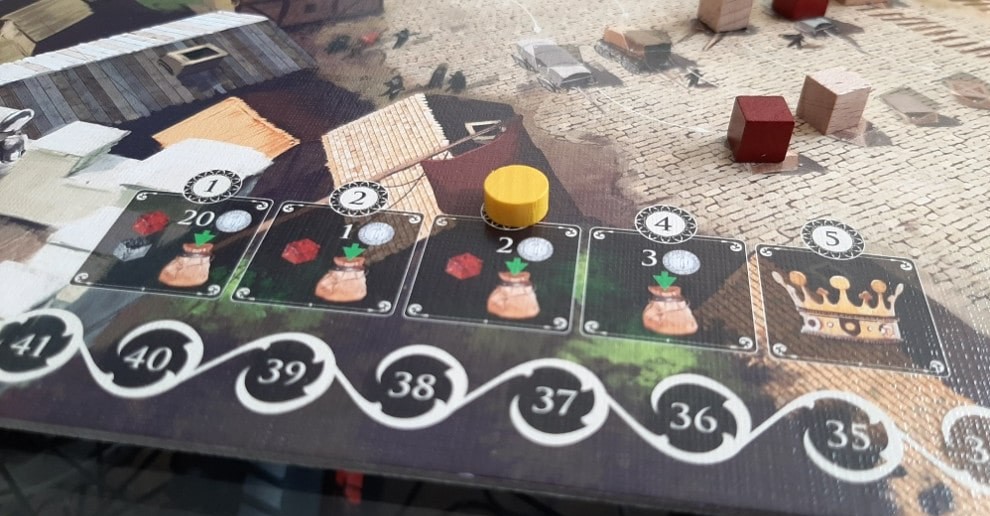
Managing money and resources
The entire game consists of only five rounds, and the money and resources that remain in our hands do not count towards the final scoring. Therefore, we must skillfully plan the operation so that we do not run out of them at an important moment, but also that we have time to use them. Although, if we are not the last player, we can still use florins in the fifth round to make it difficult for others to bid.
Each turn may perform three actions: Import, Build, and Produce. The only time we can use florins is the first one. There are as many as four land trade routes and two water routes that are activated after the construction of ports. When importing resources, two queues of all available routes fill up. So we know what the current and next player will have available. The declarer chooses at least two resources from the merchants in the first row. It can therefore block the access of a rare resource from the next line, which would be available to the next person. The selected goods are then placed in the auctioned crates.
It is a lot of fun with it, because we can participate in auctions of all players. However, it should be remembered that if the quarterback loses, we still have to give him one of the winning resources. Importantly, we play open cards and we know exactly what resources and money our opponents have and what will be necessary for them to further expand the city.
You also need to consider whether you want to delay spending florins until gold appears on the board. Depending on the number of players, the number of cubes of all resources in the bags increases, except for this rare metal, which is always only two nuggets. The more people, the less likely it is to show up at all. While theoretically there are more auctions and draws, so the odds should be similar, some players may refrain from importing or select only the minimum amount of dice, which will result in less regrind.
Similarly, it is not always worth relying on iron from merchants, because other players may block it on purpose. Fortunately, we get a bit of it from the king and there is a very useful cheat sheet on the main board, reminding us in which rounds this gift appears.
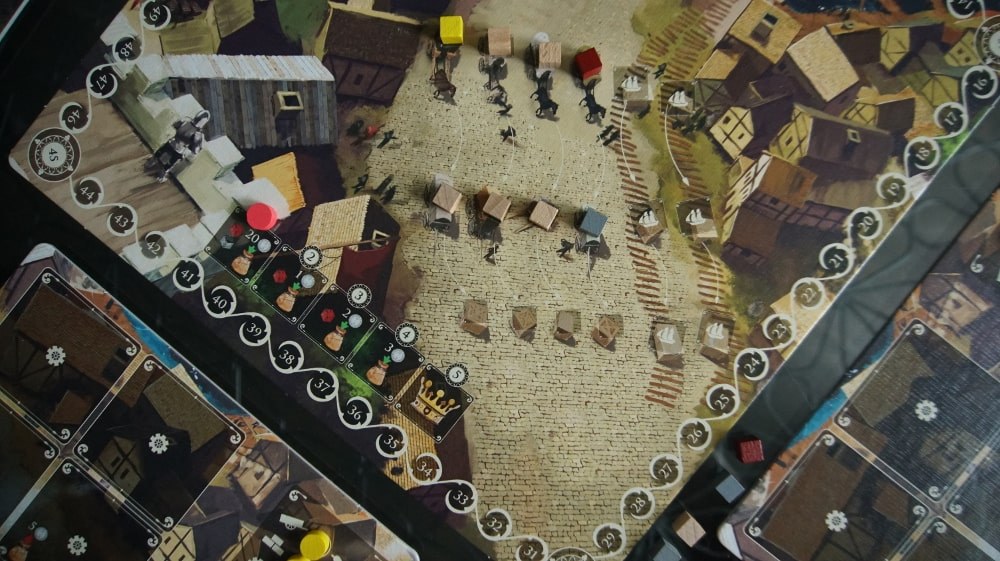
Less means more!
The rules of the game are very simple, which for me is its great advantage. You can easily explain them to children or companions of a board game who see it for the first time in their lives.
On the main board, player city cards and building tiles, we find valuable and intuitive graphical tips, which also make it easy to play in an international company. You can see a lot of important information right away and you don’t have to consult the manual often.
There is also a scoring track on the board, where we race with other players and immediately see the effects of our building work, which further stimulates the competition.
All game elements are very consistent and have a nice, charming design with illustrations by Bartek Fedyczak.
However, do not be deceived by the simple one, because in Faktoria there are still many opportunities to discover! The game stimulates thinking and you can try out slightly different strategies each time.
Thank you for the review copy of Faktoria on February !
